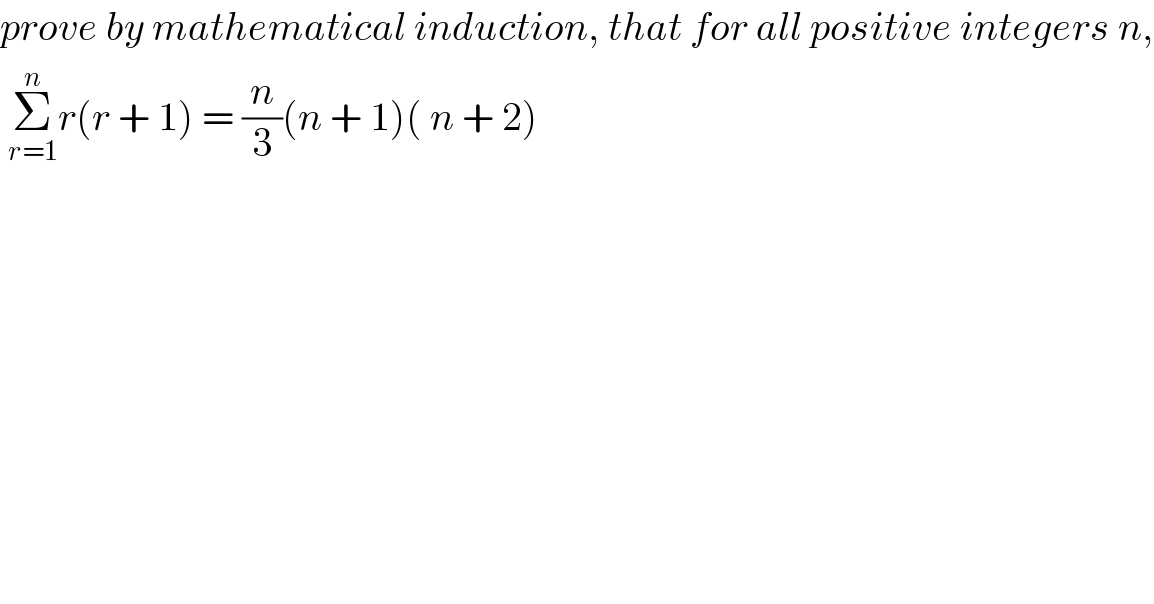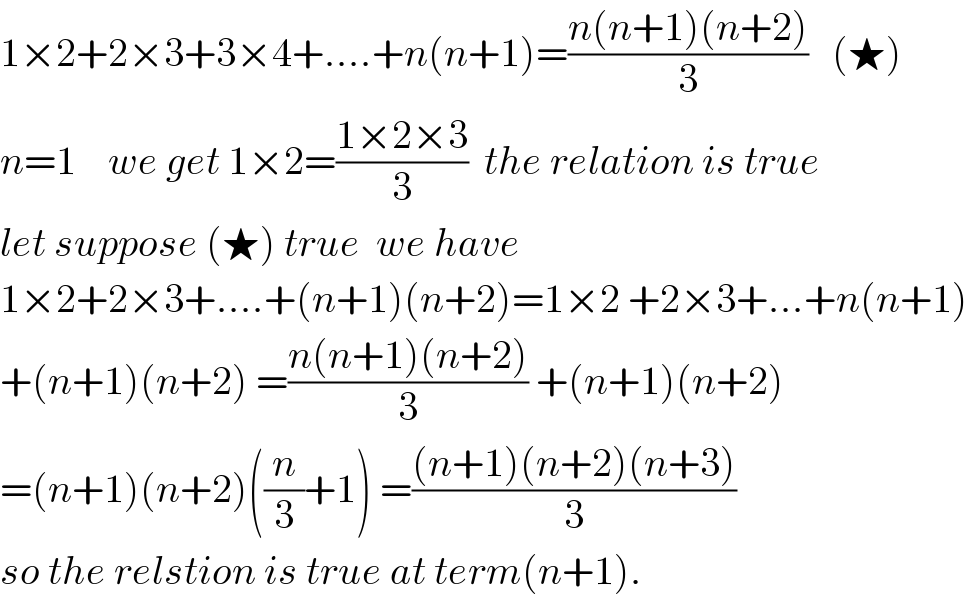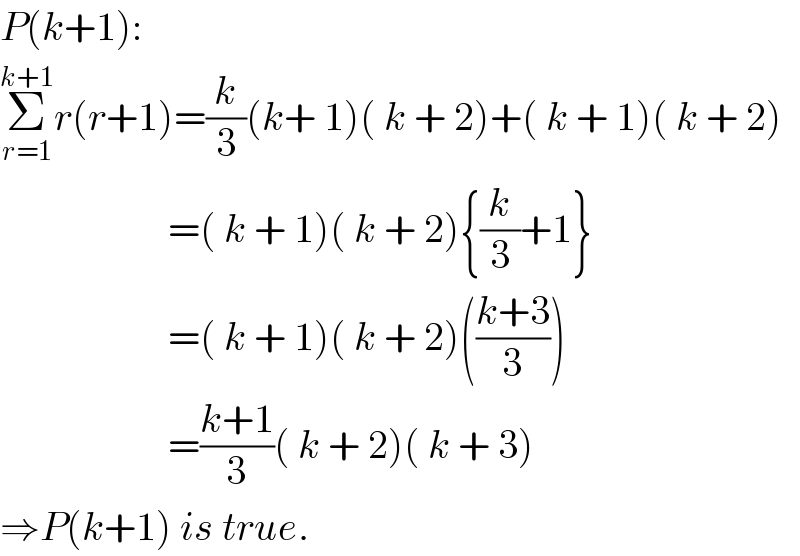Question Number 69762 by Rio Michael last updated on 27/Sep/19

Commented by mathmax by abdo last updated on 27/Sep/19

Answered by $@ty@m123 last updated on 27/Sep/19

Commented by Rio Michael last updated on 27/Sep/19

Commented by $@ty@m123 last updated on 28/Sep/19

Commented by Rio Michael last updated on 28/Sep/19

